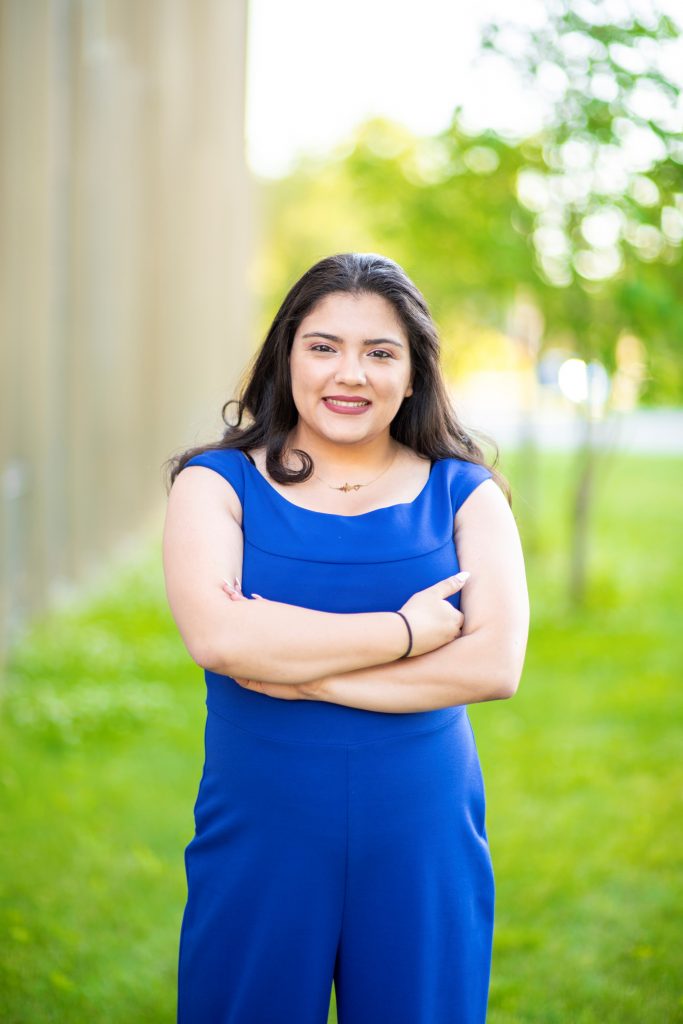
SU election supplement 2021: President
The president is the leader of the Students’ Union. They have the most flexible portfolio, but are generally in charge of setting the direction of the organization. They also maintain official relations with the university, oversee the work of Students’ Legislative Council and vote on the Board of Governors. Look for an assured, pragmatic candidate who is aware of the challenges facing the SU.
Rayane Issa

Rayane Issa has an extensive background in student service.
As a former Faculty of Arts rep, she was one of the most impactful Students’ Union representatives in recent memory. She never failed to hold executives or other faculty reps to account. Even during her year away from the SU, she’s been active at Students’ Legislative Council meetings, asking questions of current executives and keeping up-to-date on issues.
Issa has consulted with more than 200 students in putting her platform together. The result is something extensive but also doable, with points that truly prioritize the student experience.
She’s one of the few people running in this year’s election who mentioned deferred maintenance. She wants to work to improve some of the elevators that are no longer functional which will help accessibility on campus — something that very few candidates touch on. Issa is aware that students will hopefully head back to class in person at some point, and the deferred maintenance problem on campus isn’t going away. She also is one of the few candidates to mention that a return to campus must be student-centered. We have no doubt she would fight to ensure that student needs, concerns and fears are taken into consideration in returning to campus.
Issa’s goal of creating an ‘Intro to the SU’ learning module to continue to engage students with the SU is easily implemented and such a good idea we’re actually shocked no one has come up with it before. It’s incredibly well thought out and would go a long way in ensuring that first-year students are able to understand what the SU is — and hopefully why voting for competent candidates is important.
Issa spoke a lot about “proactive engagement,” and “action-based representation” and her desire to make sure students are heard.
“It’s not my say on how the SU should move forward, it is the student body’s say on how the SU should move forward,” said Issa.
Issa has an incredibly positive personality which will draw students to her. In her past experience she’s been a voice for students who haven’t always been heard and as SU President, there’s no doubt she’d continue to channel the voices of these students.
She touched on the Bermuda Shorts Day issue that comes up every year and knows that it’s important to many students. Her consultative approach will be beneficial here as the SU navigates what to do about this perennial issue.
Overall, Issa knows the issues inside and out. She’d be an exceptional president.
Nicole Schmidt

With a plethora of political experience both on and off campus, Nicole Schmidt has the vision and practicality suited for the presidential role.
Schmidt is advocating for transparency within the Students’ Union, as she believes that the SU must move in a new direction post-pandemic. The biggest part of her platform — centred around fighting tuition increases — would see Schmidt lobbying the provincial government for increased student supports like grants and bursaries, as well as reducing the loan prime interest rate and reevaluating the removal of Alberta’s tuition tax credit. When asked what she would do differently than the previous SU administration to ensure that tuition hikes don’t continue to increase, Schmidt stated that, “advocacy is fine, but the most important thing is public pressure.” Her platform does centre on advocacy work mostly at the provincial level, and she is determined to learn from the “wins and losses of this last year, and learn from them and build on those.” She specifically plans to work with the Council of Alberta University Students (CAUS) to further coordinate lobbying in order to apply this pressure to the provincial government.
The second piece of her platform, — a popular issue among candidates especially with regard to the shift to online learning — is increased mental health resources on campus. Schmidt maintains that she would advocate for an increase in student accommodations for mental health grievances, and advocate for a permanent CR/F option as well as a push for more compassionate grading to directly combat student stress in response to online learning. She asserts that she would put pressure on the provincial government for “per-student provincial funding,” and would advocate for a “set amount of funding per student,” where this funding could be used for mental health services.
When it comes to student opportunities, Schmidt is looking to fight for the reimplementation of the Student Temporary Employment Program (STEP), as well as increase funding for things like internships, part-time employment and co-op terms for students to gain relevant experience outside the classroom. She asserts that students need this work experience before they graduate in order to help ensure financial stability.
“Faculties and a lot of different offices on campus have had to cut or significantly reduce the amount of positions they can offer and the duration of those positions,” says Schmidt.
Specific and clear, Schmidt has a plan going forward for the presidential role in the 2021/2022 school year.
Remember, the supplement constitutes the opinions of our panel — it’s important that you read the candidate’s platforms on the SU’s website, interact with those running for positions, ask questions and make up your own minds about who deserves your vote!
